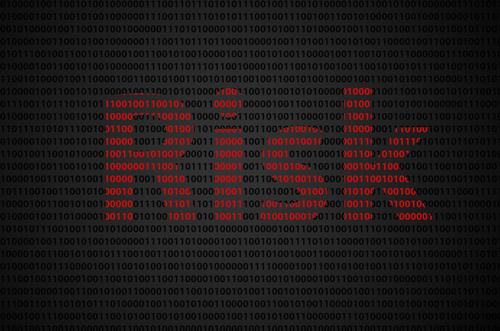Two individuals associated with the notorious Lapsus$ cybercriminal gang have been convicted for their involvement in a string of high-profile hacking incidents, according to the BBC.
These arrests have finally shed some much-needed light on the nefarious activities of this group that had sent shockwaves through the technology industry, leaving even the most well-defended organizations vulnerable and concerned.
The teenage hacking collective known as Lapsus$
Lapsus$ emerged as a formidable threat in the cybercriminal landscape, characterized by its audacious tactics and brazen attacks on major tech companies. The group, believed to be composed mostly of teenagers from the United Kingdom and Brazil, left a trail of cyberattacks on prominent organizations, including Microsoft, Cisco, Okta, Nvidia, T-Mobile, Samsung, Vodafone, Ubisoft, 2K, and Globant, among others.
Arion Kurtaj, an 18-year-old from Oxford, England, is believed to have played a prominent role within the Lapsus$ gang. Kurtaj's arrest was not a straightforward affair, as he was apprehended twice in 2022—first in January and then again in March—in connection with the group's hacking activities.
[RELATED: Lapsus$ Returns One Week After 7 Teenage Hackers Arrested]
The extent of Kurtaj's involvement in cybercrimes is staggering. He faced charges related to breaches at fintech company Revolut, ride-sharing giant Uber, and video game developer Rockstar Games. Kurtaj, who reportedly used multiple aliases online, including 'teapotuberhacker,' 'White,' and 'Breachbase,' also leaked gameplay videos from the highly-anticipated and unreleased Grand Theft Auto 6, adding another layer to his criminal activities.
Despite being out on bail, Kurtaj continued to engage in cyberattacks, highlighting the challenges of monitoring and restraining digital criminals.
Lapsus$ techniques and motivations
Lapsus$ gained notoriety for its sophisticated techniques and motivations that seemed to oscillate between fame, financial gain, and sheer amusement. Their techniques included SIM swapping, prompt bombing attacks, and social engineering, which allowed them to infiltrate well-defended organizations. Of particular note is their willingness to pay exorbitant fees for access to telecommunications providers' platforms, enabling them to hijack phone numbers and gain access to accounts via SMS one-time passcodes.
The group's activities extended from 2021 to 2022 and involved individuals from both the U.K. and Brazil. Their actions underscored the urgent need for enhanced cybersecurity measures and a comprehensive approach to the evolving threat landscape.
The end of Lapsus$
The Lapsus$ gang's reign of cyberattacks met its end in September of 2022, when law enforcement efforts resulted in the arrests of several members, including multiple individuals in the U.K. and another in Brazil. This marked a turning point in the battle against cybercrime and served as a stark reminder that even the most skilled threat actors can be brought to justice.
While the true extent of the financial gains made by Lapsus$ remains unclear, the arrests and convictions of key members represent a significant victory for cybersecurity experts and law enforcement agencies. It also serves as a warning to other cybercriminal groups that their actions will not go unpunished.
As the digital landscape continues to evolve, collaboration between international law enforcement agencies and cybersecurity experts will be crucial in safeguarding individuals, organizations, and critical infrastructure from cyber threats. The successful takedown of Lapsus$ demonstrates the importance of such collaboration in maintaining the security and integrity of the cyber world.
Follow SecureWorld News for more stories related to cybersecurity.





